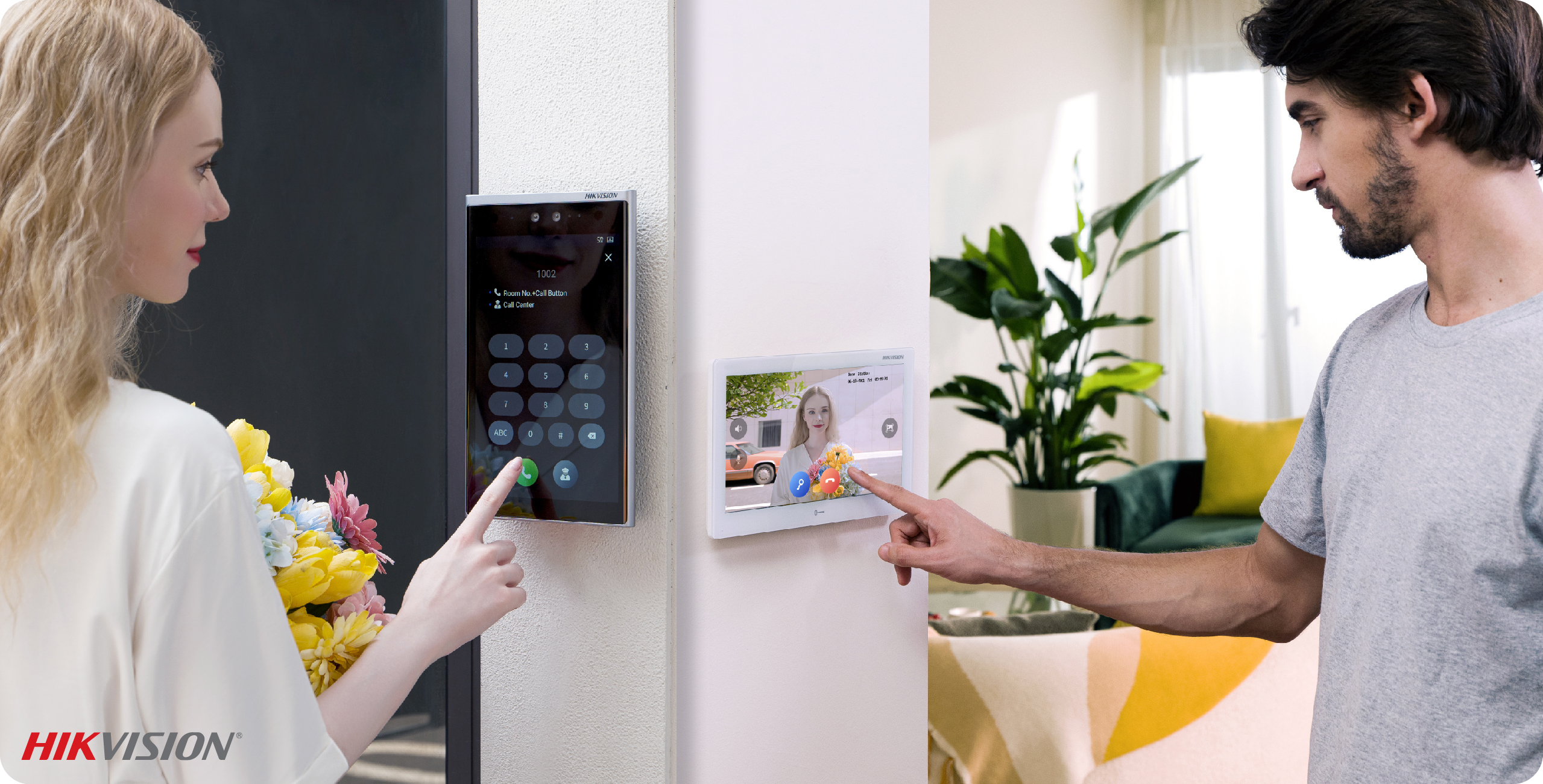
Undoubtedly, opting for an access control intercom system for your business is a security-related choice. However, given the large range of available options, it can be challenging to determine which one is suitable for you. It’s worth noting that each business has distinct requirements for their intercom systems. What may be effective for you may not be for your neighbouring business. Therefore, when selecting an intercom system, it’s crucial to consider a few essential factors.
The initial aspect to contemplate is whether you require a wired or wireless intercom system. Generally, if you prioritise affordability and effortless installation, a wireless system might be a suitable option for you. If you prioritise security and dependability above all else, then a wired system would be the optimal choice.

Although wireless intercom systems are relatively easy to install, they also come with certain drawbacks. Due to their wireless nature, their range is limited and can be impeded by obstructions such as walls and equipment. If you have a spacious property or plan to set up an intercom system at the entrance gate, a wireless option may not suffice. Additionally, they are typically less secure because they use radio signals, which can be potentially vulnerable to radio interference. Other radio transmitters in the vicinity may inadvertently (or intentionally) intercept your intercom’s signal.
Wired intercom systems require the use of wires to link each intercom station. If you dislike the appearance of wires on your walls and ceilings, you may have to cut through the wall to run the cables behind it. The optimal period to install a wired system is during the property’s construction phase. Otherwise, it may be a strenuous and costly process.
Compared to wireless systems, wired intercoms are notably more reliable and secure. Since the intercoms are physically connected, the distance between stations is not a concern, they are harder for intruders to penetrate since everything operates on a closed circuit.
Wired intercom systems operate through a network of cables that connect each intercom station within a facility. The installation process involves running wires through the walls and ceilings to establish a closed circuit, which facilitates secure and reliable communication between different stations.
It is ideal to install a wired intercom system during the construction phase of a property to avoid the strenuous and costly process of retrofitting. The wired setup ensures a more secure and dependable system compared to wireless alternatives, as it is not susceptible to radio interference and offers a stable connection irrespective of the distance between the stations.
Yes, wired intercom systems are hard-wired, meaning that they require physical cables to connect each intercom station. This hard-wired setup forms a closed circuit, making the system more secure and reliable compared to wireless systems. The hard-wired nature of these systems makes them less vulnerable to intrusions and interference from other radio transmitters, providing a secure line for communication.
However, the installation process can be strenuous and potentially costly, especially if not planned during the initial construction phase of the property, as it involves running wires through walls and ceilings.
The number of wires needed for a wired intercom system can vary based on the specific requirements of the system, including the number of intercom stations and the features of the system. Generally, a basic wired intercom system would require at least two wires to establish a connection between the stations.
However, more advanced systems with additional functionalities, such as video capabilities or integration with other security systems, might require additional wiring to support these features. It is recommended to consult with a professional installer to determine the exact wiring requirements for your specific intercom system setup, and perhaps even seek advice on how to choose the best CCTV system to complement your intercom setup.
Video intercom systems are quickly gaining popularity owing to their superiority in terms of security. It can be challenging to identify the person on the other end of the line based solely on their voice. However, if you can view their face on a monitor, there will be no room for doubt.
Selecting a video intercom system instead of an audio-only one will be more costly. Nonetheless, if you plan to remotely verify visitors via your intercom, a video-enabled system is hard to surpass. Conversely, if you only intend to use your intercom for internal communication within the workplace, an audio-only system may be adequate and save you some money.
Discover additional information about Hikvision’s IP Video Intercom Systems by referring to their brochure.
Intercom systems provide exceptional access control for your property. You can verify the identity of visitors before granting them access. Some intercom systems even enable you to remotely lock and unlock doors with the push of a button. Additionally, you can use HID cards and other technologies to authenticate visitors or personnel identities.
Moreover, you can add a GSM Audio intercom to a gate entry system, such as FAAC automatic barriers. This technology utilizes a mobile phone to transmit calls from the external call station to the answering device within your home. You can program a telephone number into the intercom system, enabling the person approaching the gate or door to simply call the number linked with the SIM card to gain entry to the property. Furthermore, some intercoms, such as OpenPath Intercoms, can integrate with various smart building technologies.
Installing a gate intercom system enhances property security. The process generally involves the following steps:
Remember to consult with a professional installer to ensure the system meets your security requirements and functions optimally. This concise guide aims to facilitate a smooth and successful gate intercom installation process.
Numerous systems, including 2N IP Intercoms, provide remote access via your smartphone or tablet. With a video intercom system, you can both hear and see what’s happening in your business from anywhere in the world. If you have an automated security gate entry system, you can even open doors, gates, and garages remotely using your mobile device.
Furthermore, both wired and wireless systems offer remote access options. You may also want to refer to our guide on selecting the best access control system and consider these access control factors for small businesses.
In a business setting, intercom systems serve not only as a security measure but also as a tool to foster efficient communication. Here are some considerations unique to business environments:
Integrating an intercom system into your facility management checklist is pivotal for enhancing security and communication in any business environment. It not only regulates access, ensuring entry only to authorized individuals but also fortifies internal communication, thereby safeguarding assets and personnel. Especially in emergencies, swift information dissemination via the intercom can be crucial. Thus, a well-aligned intercom system is indispensable in a comprehensive facility management strategy.
Moreover, integrating a fire alarm system with your intercom can further enhance safety. The importance of fire alarm systems in a business environment cannot be understated, as they provide crucial early warning in case of a fire, ensuring the safety of employees and protecting assets. This dual functionality of security and safety makes the combined system an invaluable asset for any business.
When choosing a business intercom system, prioritize features that cater to the dynamic needs of a corporate environment, enhancing both security and workflow efficiency.
Don’t hesitate to contact our experts today. The MJ Flood Security team will gladly provide free advice and a no-obligation quote tailored to your requirements.